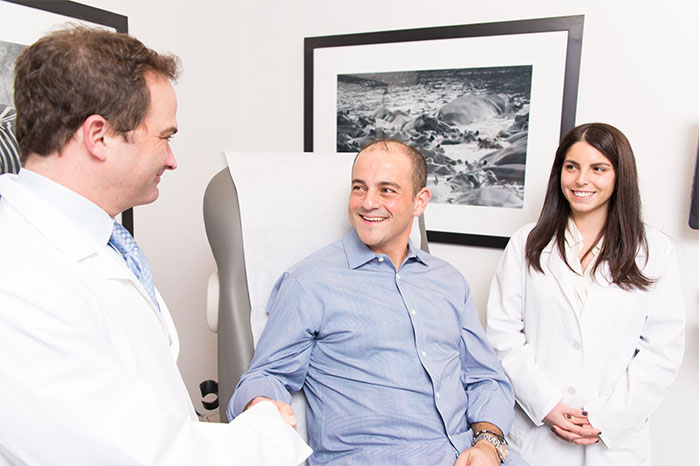The post-surgery plan that follows a Band Over Bypass procedure is every bit as important as that of any initial bariatric surgery. The Port Jefferson team of the New York Bariatric Group works with patients following the procedure to give them the tools and support needed to achieve the greatest possible success.
Diet: For the first 4 weeks after surgery, Band Over Bypass patients are instructed to limit themselves to liquid or soft foods with an emphasis on protein. After 4 weeks, solid foods can be reintroduced. Certain foods and beverages must be avoided and portions must be smaller. Snacking must be avoided. Patients will be given specific directions and guidelines that must be followed to ensure success and to avoid discomfort.
Exercise: Patients are encouraged to adopt a healthy lifestyle that includes exercise. Exercising will help improve mobility, curb hunger, benefit almost every organ in the body, and therefore lead to greater overall health.
Post-Surgery Follow-Up Plan: It is critically important to monitor the patient’s progress in the weeks and months that follow the surgery. The surgeon can adjust the tightness of the band, if necessary and make sure that the recovery is progressing well, as well as making sure that the patient’s diet and eating habits are appropriate.
The aftercare portion of any bariatric surgery with the New York Bariatric Group is an essential part of the weight-loss procedure. Our patients enjoy personalized, individual care and have the greatest chance of optimal success through the life-long follow-up that is available to them.
To find out more about Band Over Bypass surgery, contact the Port Jefferson office of the New York Bariatric Group today.

